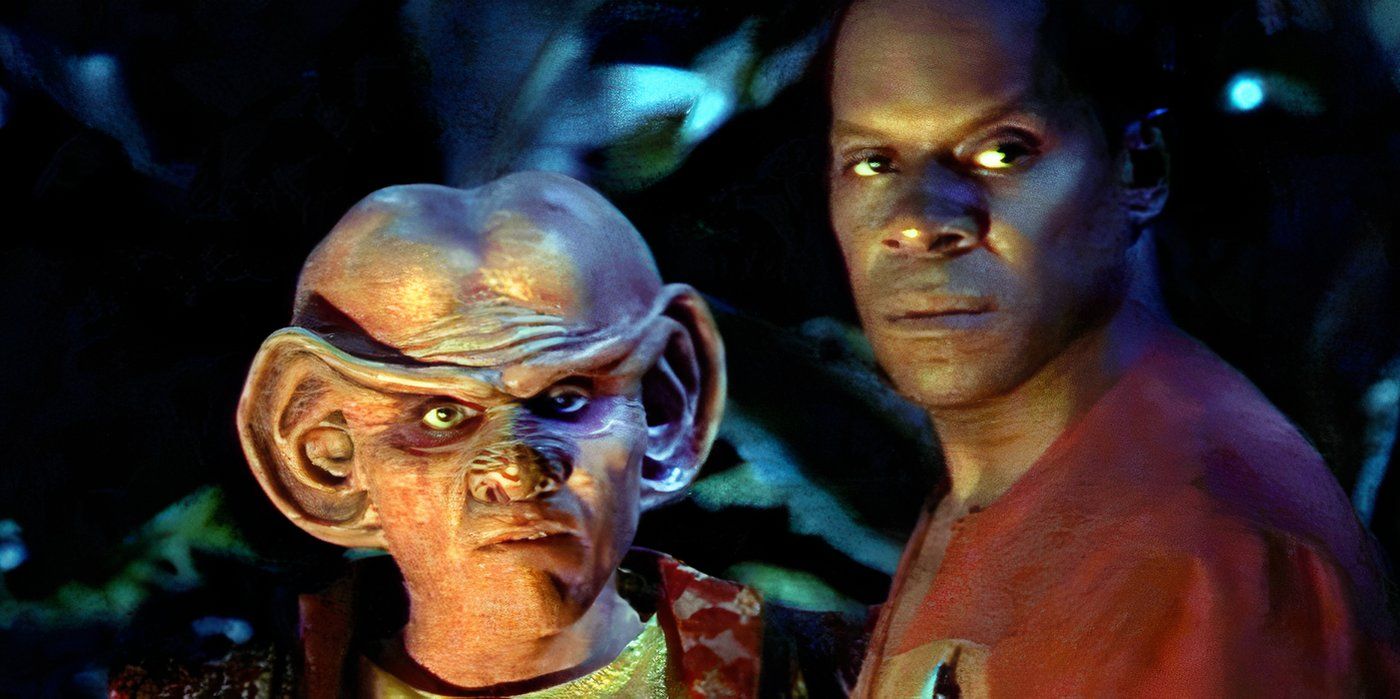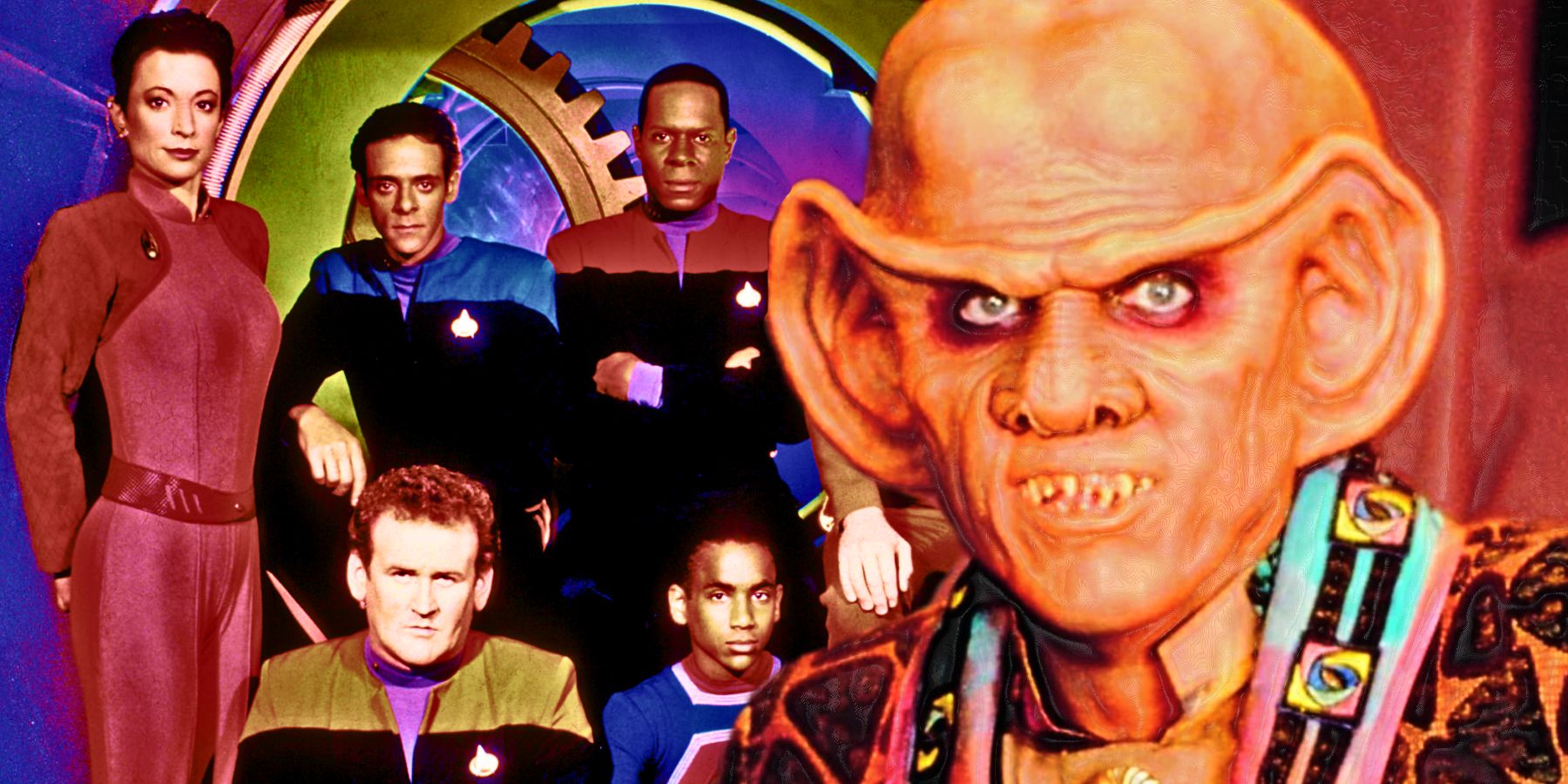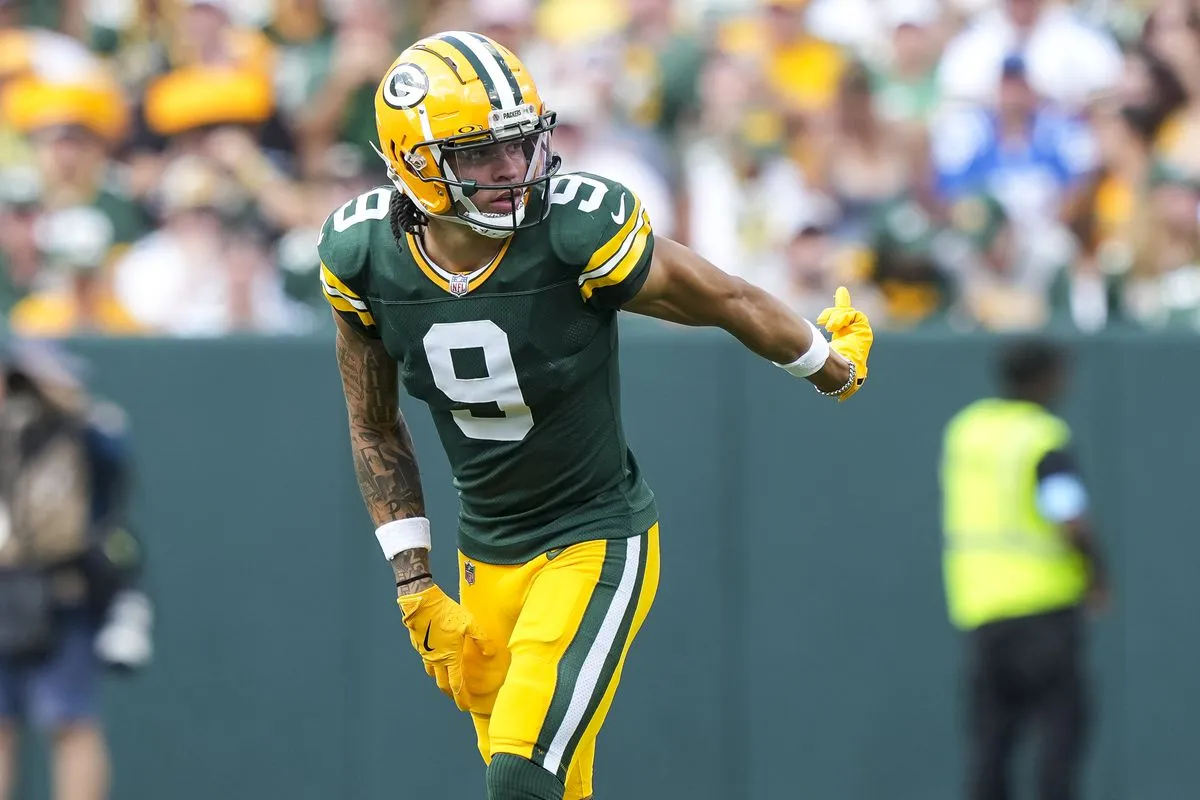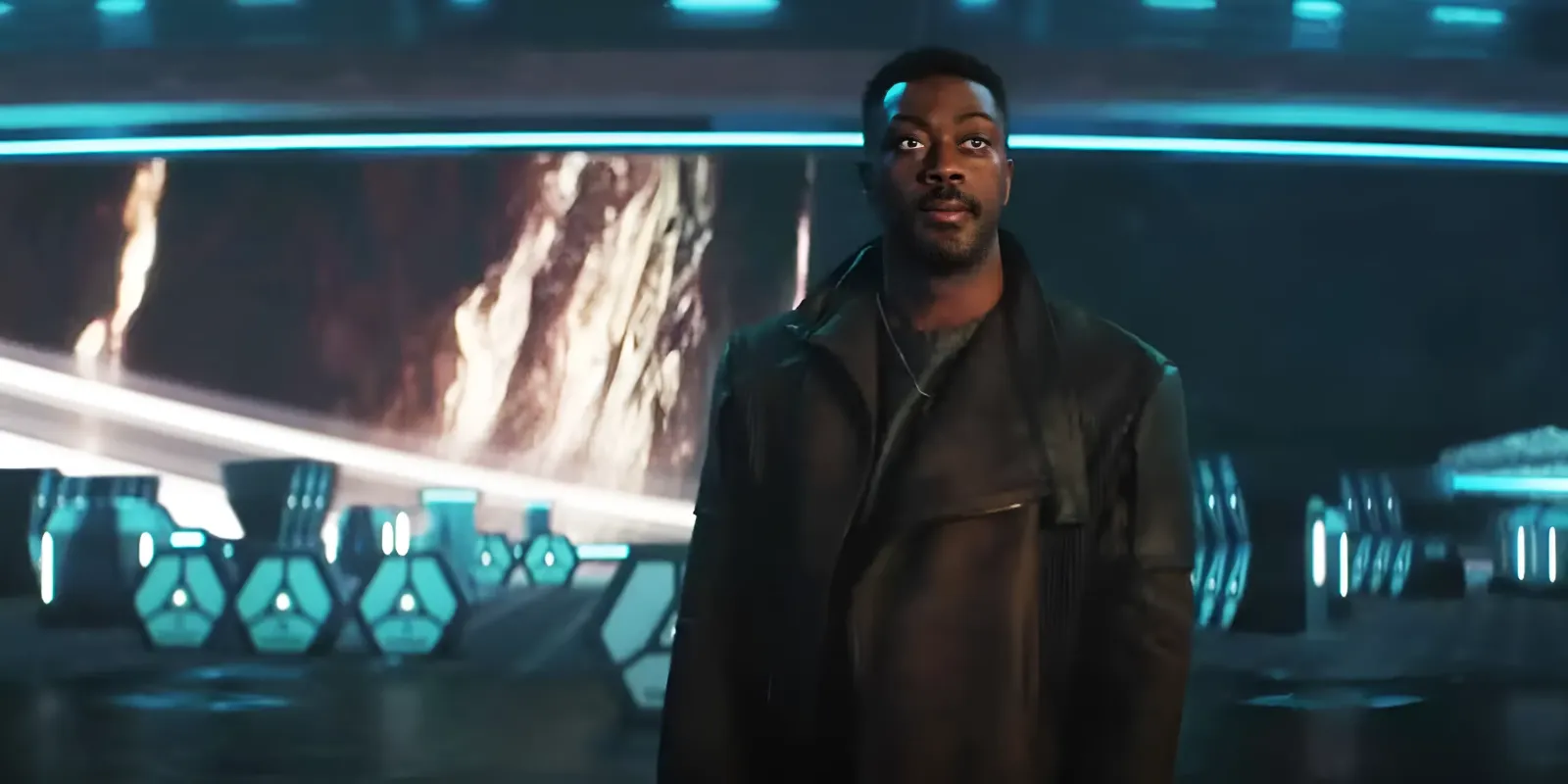Summary
- Quark's confrontation with Sisko in Star Trek: DS9's season 2 finale challenged the perception of Ferengi as failed villains.
- The pivotal moment in "The Jem'Hadar" highlighted the unique insights and challenges Quark and the Ferengi offer.
- Sisko's realization and acceptance of Quark's viewpoints signify a broader critique of Starfleet's moral superiority.

A fight between Commander Benjamin Sisko (Avery Brooks) and Quark (Armin Shimerman) in Star Trek: Deep Space Nine's season 2 finale represented a major turning point for the Star Trek franchise. In DS9 season 2, episode 26, "The Jem'Hadar", Quark takes advantage of a scientific field trip for Jake Sisko (Cirroc Lofton) and Nog (Aron Eisenberg) to try and sell Deep Space Nine's commanding officer on his plans to use the station's screens for advertising purposes. Quark's presence on the trip does not go down well with Sisko. Tensions between the two Star Trek: DS9 characters only worsen when they're captured by the Jem'Hadar.
Star Trek: Deep Space Nine's season 2 finale, "The Jem'Hadar" was a landmark episode that established the existential threat posed to the Federation by the Dominion. However, as well as laying the groundwork for DS9's Dominion War, "The Jem'Hadar" also represented a pivotal moment for how the Ferengi were seen in Star Trek. Introduced as villains in Star Trek: The Next Generation season 1, the Ferengi failed to take off as potential Klingon replacements. After two seasons of DS9, the perception of the Ferengi as "failed villains" was shifting, and the season 2 finale put a line under it forever.
Sisko & Quark's Fight In DS9 Was A Turning Point For Star Trek's Ferengi
Sisko and Quark are at each other's throats for the first half of Star Trek: Deep Space Nine season 2, episode 26, "The Jem'Hadar". Sisko is irritated by Quark's complaints about the great outdoors, while Quark becomes increasingly frustrated with Sisko looking down on him for being a Ferengi. Star Trek: Deep Space Nine's writer and producer Ira Steven Behr, who wrote "The Jem'Hadar" was keen that these scenes should draw a line under the idea that the Ferengi are failed Star Trek villains. Discussing DS9 season 2, episode 26 in the Star Trek: Deep Space Nine Companion, Behr said:
...it was time to lay to rest this long-time feeling that the Ferengi were the 'failed villains' of the Star Trek universe. I wanted people to see them as something else. And if we could show that Sisko, whose character has a lot of weight, would take what Quark says seriously, then the audience would take it seriously.
Crucially, at the end of Star Trek: Deep Space Nine season 2, episode 26, "The Jem'Hadar", it's Quark, not Sisko or any of the Starfleet characters, who reveals the Vorta's deception. Most importantly, the audience sees Sisko acknowledge that Quark has something important to say, where just minutes earlier they saw him dismiss the Ferengi's interjections. This proved once and for all that the Ferengi weren't Star Trek villains, they were just a species with a different outlook from the Federation, and could therefore offer valuable insight.
Why Quark Was Right To Challenge Sisko In Star Trek: DS9

Quark accuses Sisko and the Federation of being hypocrites, stating that they only practice tolerance and understanding toward cultures that remind them of their own, and he has a point. In Star Trek, any planets not in the Federation's club are seen as either villains or primitives. Quark and the Ferengi aren't so easily categorized as either, which critiques the binary nature of Starfleet's moral superiority. Brilliantly, Sisko doesn't give Quark any excuses or try to turn the tables on the Ferengi, he tries to deflect because he's uncomfortable, and then accepts that he's wrong. The most damning criticism is when Quark brings up humanity's past:
The way I see it, humans used to be a lot like Ferengi. Greedy, acquisitive, interested only in profit. We're a constant reminder of a part of your past you'd like to forget. [...] Humans used to be a lot worse than the Ferengi. Slavery, concentration camps, interstellar wars. We have nothing in our past that approaches that kind of barbarism.
Quark's assessment that the Federation are distrustful of the Ferengi because their culture is a reminder of the capitalist excess that they finally abandoned is an astute one. Gene Roddenberry conceived the Ferengi as a critique of the "greed is good" ethos of 1980s Wall Street. Quark in Star Trek: Deep Space Nine perfectly embodies that original concept, but he and his Ferengi family also learn from their relationships with Starfeleet and the Federation. And in return, Starfleet and the Federation benefit from the insight and sheer heroism of Quark, Nog, and Rom, a lasting example of Roddenberry's "infinite diversity in infinite combinations".



